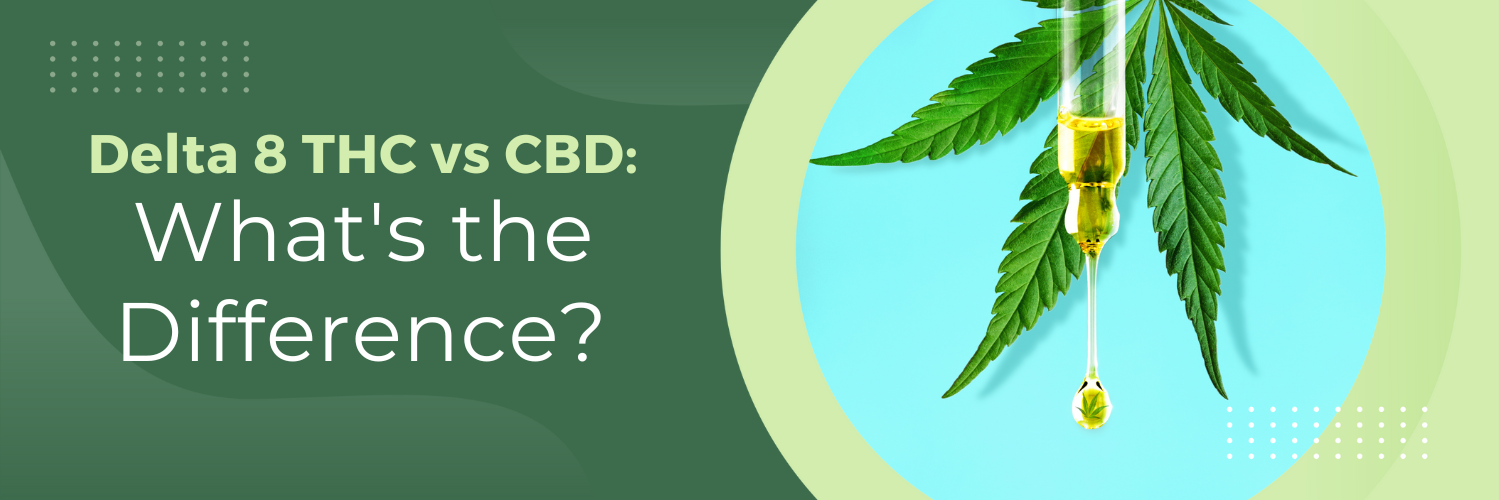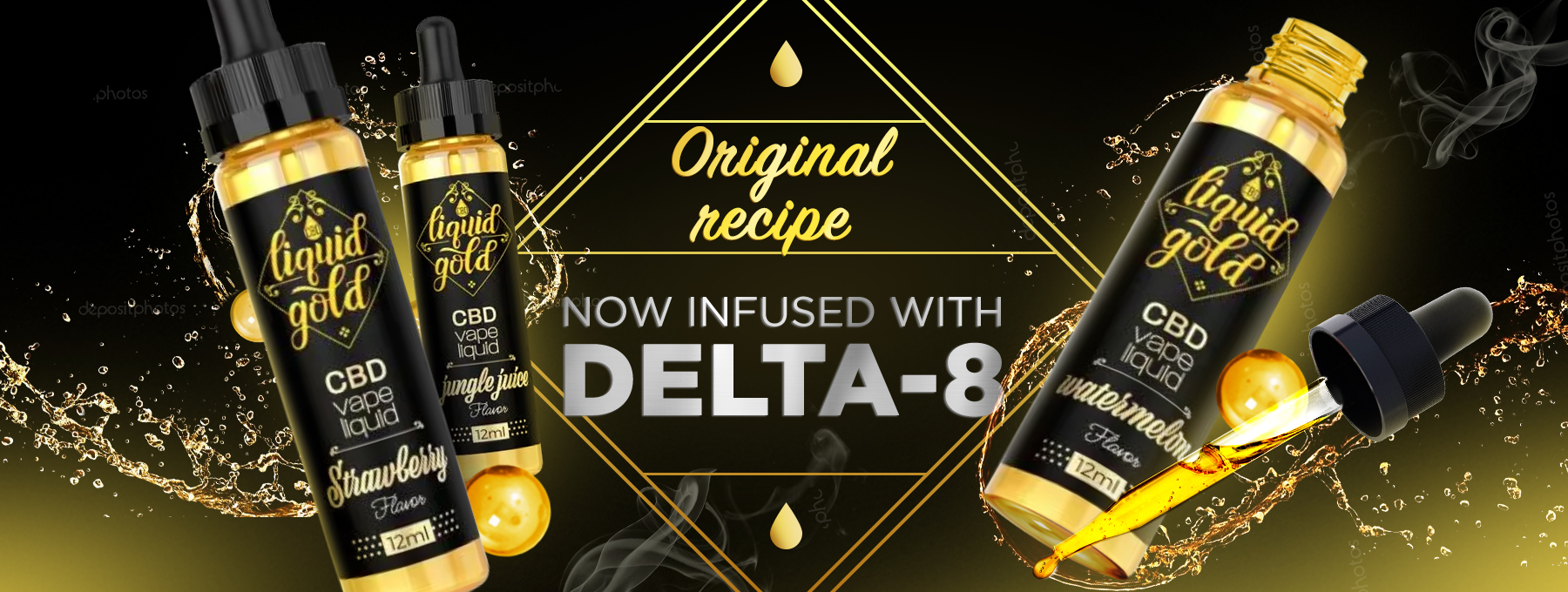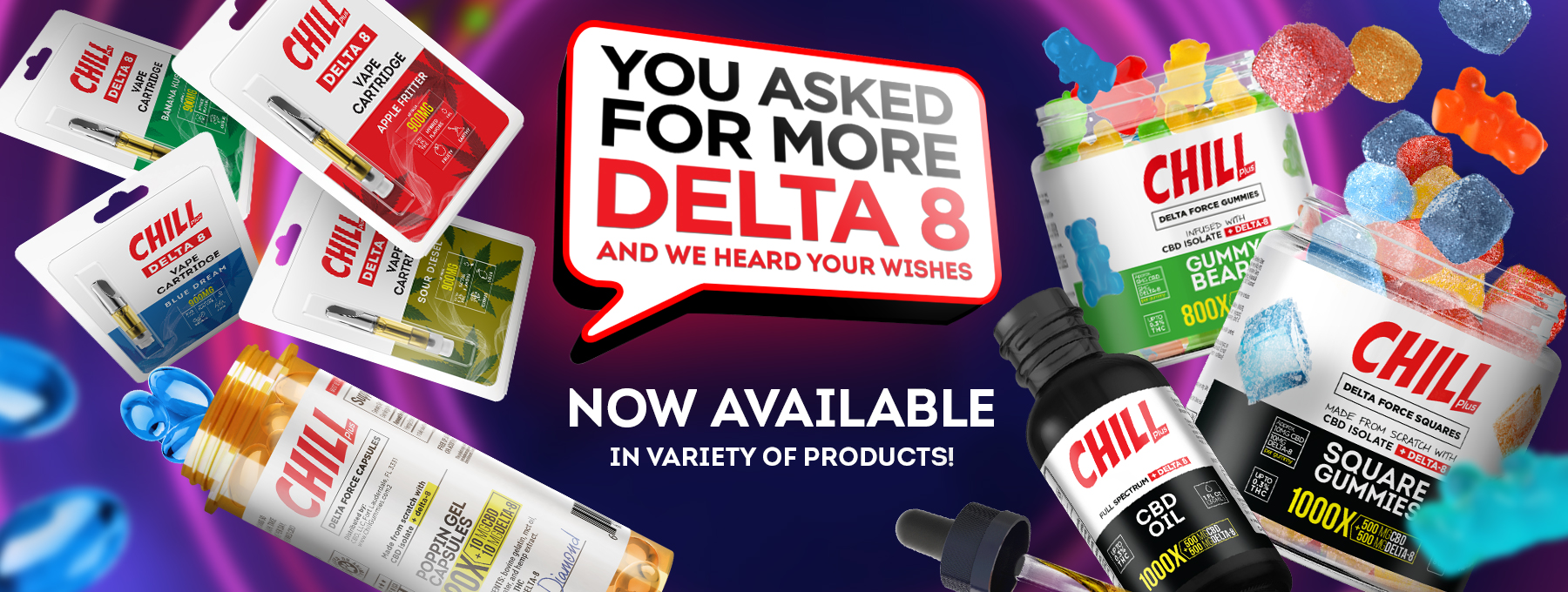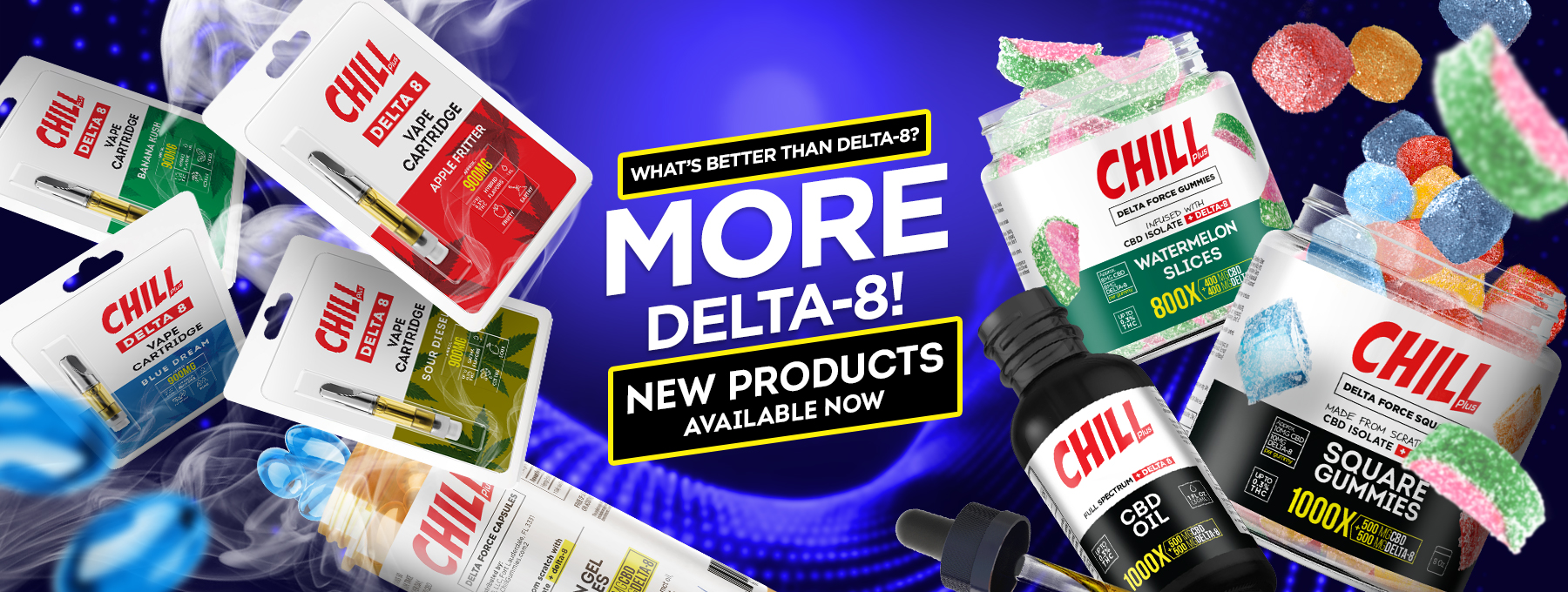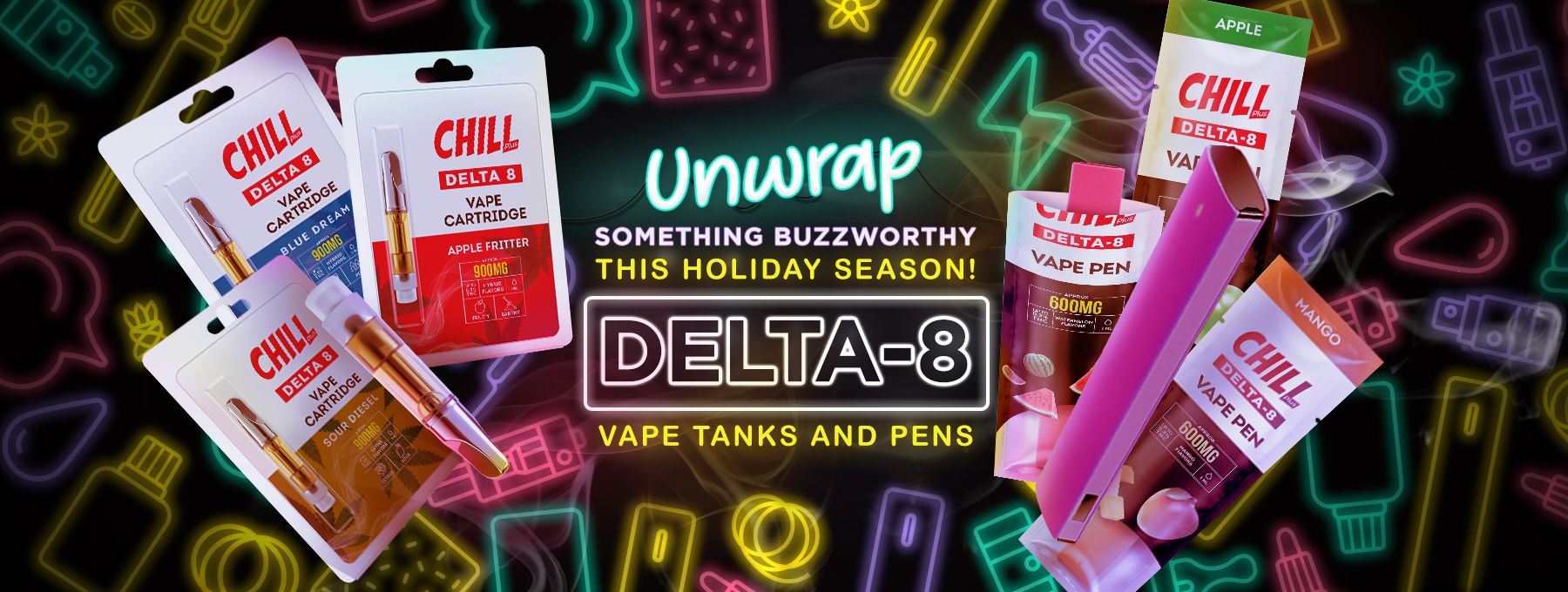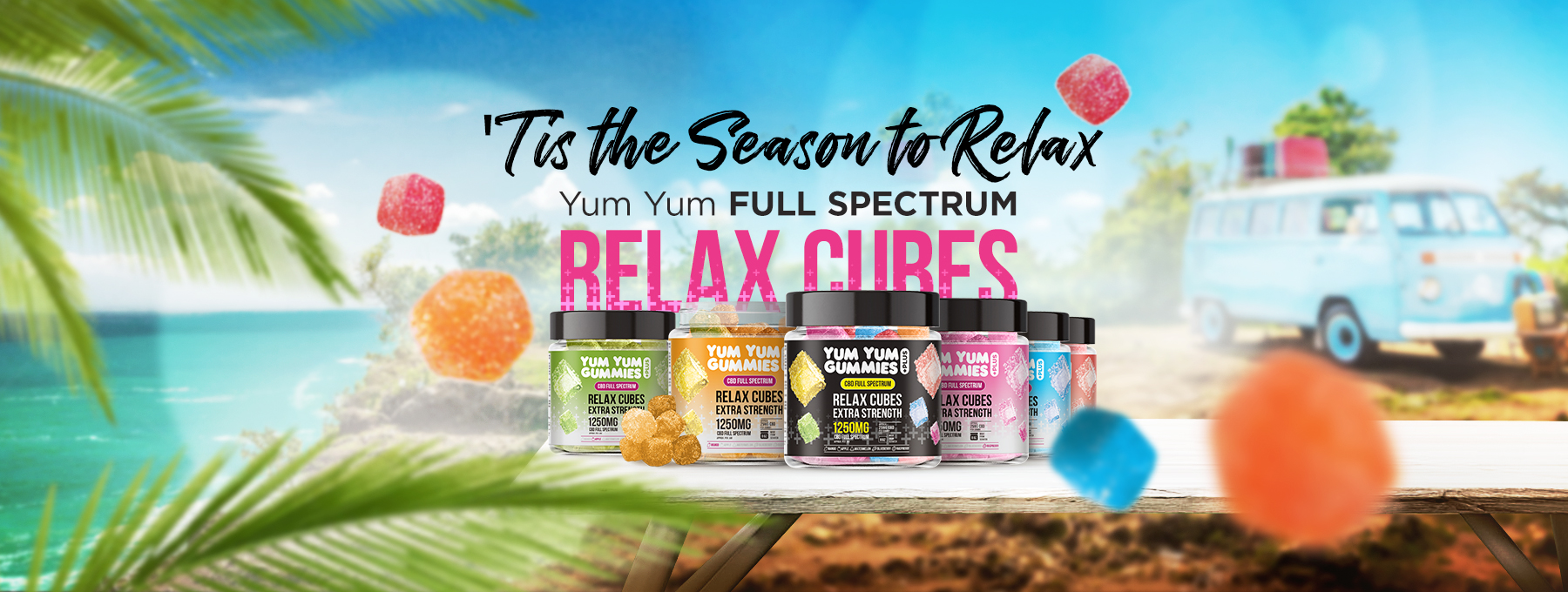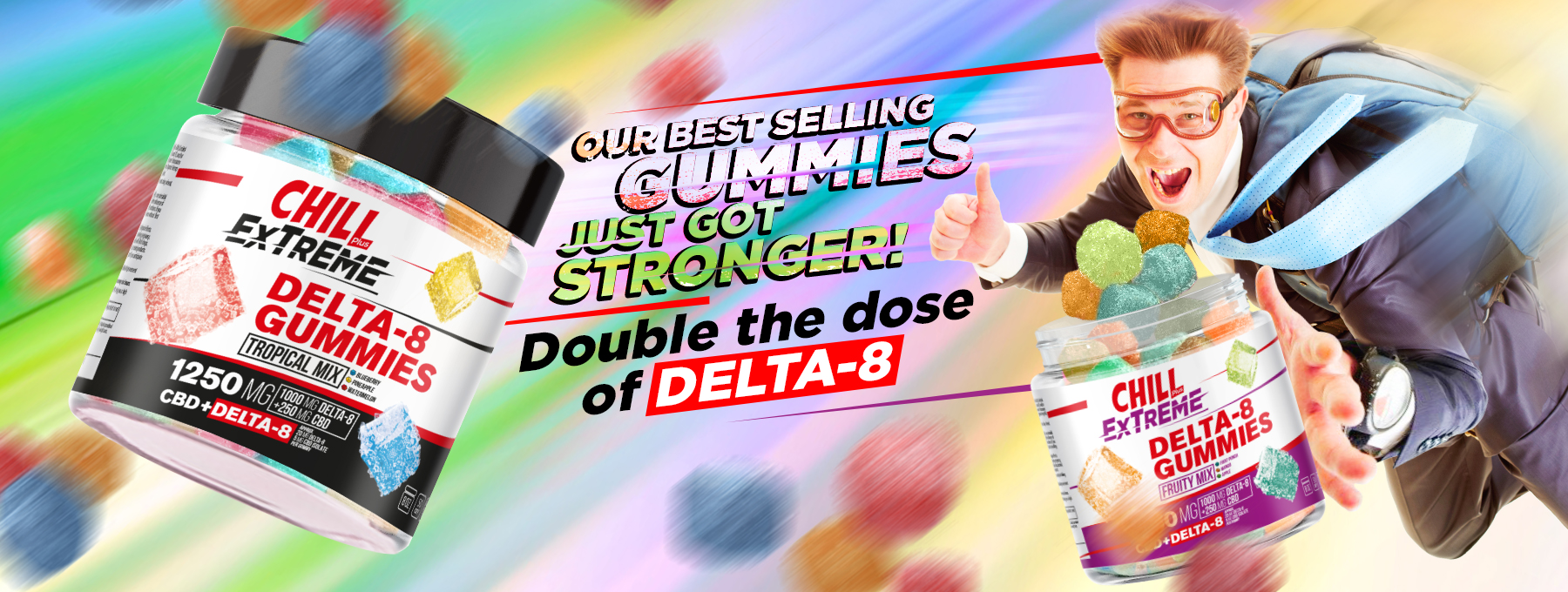Delta 8 THC vs CBD
Cannabinoids have a long history dating back thousands of years. Only in the late 20th century did scientists begin to discover individual compounds like Delta 8 THC and CBD.
Cannabinoids were first discovered in the 1940s, with CBD being one of the first to be identified. It wasn’t until the 1960s that researchers began to understand their structure and how they interact with the human body.
The endocannabinoid system
This is a complex cell-signaling system in the body that plays a crucial role in regulating a range of functions and processes. Cannabinoids interact with this system through receptors known as CB1 and CB2.
What is Cannabis?
Cannabis, a genus of flowering plants, is renowned for its compounds known as cannabinoids. The most widely recognized members of this genus are Cannabis sativa and Cannabis indica, and there are numerous strains within these species.
Marijuana vs. Hemp
Cannabis plants can be broadly categorized into marijuana and hemp. While both belong to the Cannabis sativa species, they have different concentrations of cannabinoids.
Marijuana: Typically contains higher levels of THC, the psychoactive compound responsible for the “high” sensation. It also contains other cannabinoids, including CBD, but usually in smaller quantities.
Hemp: Has higher concentrations of CBD and is required by law in the United States to contain less than 0.3% THC. Because of its low THC content, hemp is often used for extracting CBD for various products.
Cannabinoid Concentrations in Different Strains
Cannabis plants contain over 100 different cannabinoids. The two most well-known are THC (tetrahydrocannabinol) and CBD (cannabidiol), but there are many others, including CBC (cannabichromene), CBG (cannabigerol), and CBN (cannabinol).
The concentrations of these cannabinoids can vary significantly among different strains of cannabis. For example, some strains are bred to be high in THC and low in CBD, while others may have a more balanced ratio or be high in CBD and low in THC.
Terpenes and Flavonoids
In addition to cannabinoids, cannabis plants also produce other compounds like terpenes and flavonoids. Terpenes are aromatic compounds that contribute to the smell and taste of the cannabis plant, and may also have their own therapeutic properties. Flavonoids are polyphenolic compounds that contribute to the plant’s color and have been studied for their potential health benefits.
Cultivation and Breeding
Over the years, cannabis plants have been cultivated and bred for various purposes. Some strains are bred for their fiber and are used in textiles (hemp), while others are cultivated for their high cannabinoid content for medical and recreational use.
What is Delta 8 THC?
Delta 8 THC is a naturally occurring cannabinoid in cannabis. It is similar to Delta 9 THC but with a slightly altered chemical structure.
Delta 8 THC, or delta-8-tetrahydrocannabinol, is a minor cannabinoid that occurs in small amounts in cannabis plants. It is known for having psychotropic effects though less potent than Delta 9 THC.
Chemical structure and properties
Delta 8 THC has a double bond on the 8th carbon chain whereas Delta 9 THC has this bond on the 9th chain. This small difference makes Delta 8 THC less potent and can produce a clearer high with less anxiety.
Delta 8 THC is extracted from both hemp and marijuana. It is often produced through a conversion process from CBD or Delta 9 THC.
What is CBD?
CBD, short for Cannabidiol, is one of the major cannabinoids found in cannabis plants. It has gained popularity in recent years due to its potential therapeutic benefits without the psychoactive effects associated with THC. CBD is a naturally occurring compound found in both marijuana and hemp varieties of the cannabis plant. It is one of over 100 cannabinoids, and in hemp plants, it is found in higher concentrations. Unlike its counterpart THC, CBD does not produce a euphoric high, making it more suitable for those seeking the medicinal benefits of cannabis without the psychoactive effects.
While CBD and THC have a similar molecular formula, C21H30O2, their atoms are arranged differently. This different arrangement is what causes the significant difference in how they affect the human body.
Interaction with Endocannabinoid System
The human endocannabinoid system (ECS) plays a vital role in regulating various physiological processes, including mood, pain, sleep, and appetite. The ECS comprises receptors, mainly CB1 and CB2. THC binds directly to CB1 receptors, which are mostly found in the brain, and this interaction is what causes psychoactive effects.
CBD, on the other hand, does not bind directly to either CB1 or CB2 receptors. Instead, it seems to work by interacting with various non-cannabinoid receptors and ion channels and influencing the ECS indirectly, sometimes even enhancing the body’s own endocannabinoids.
Non-psychoactive properties
One of the most notable properties of CBD is that it does not produce the psychoactive effects that THC does. This makes CBD an attractive option for those who are looking for relief from pain, anxiety, inflammation, and other conditions without the mind-altering effects of marijuana or certain pharmaceutical drugs.
Sources of CBD
CBD can be sourced from both marijuana and hemp plants. However, because marijuana is still federally illegal in many places, much of the CBD available on the market is derived from hemp. The extraction process involves using solvents or CO2 extraction methods to extract CBD oils from the cannabis plant. These oils can then be used on their own or incorporated into various CBD products.
Hemp-derived Delta 8 THC
Hemp, a variety of the Cannabis sativa plant, is known for its high levels of CBD and low levels of THC. Through selective breeding and extraction processes, hemp can be a viable source of Delta 8 THC. The 2018 Farm Bill in the United States legalized the cultivation and extraction of hemp-derived products, including Delta 8 THC, as long as they contain less than 0.3% Delta 9 THC on a dry weight basis.
The extraction process typically involves isolating CBD from hemp plants using methods like CO2 extraction or solvent extraction. After obtaining CBD extract, it can undergo a conversion process to transform CBD into Delta 8 THC. This conversion process often involves using specific catalysts or chemicals to rearrange the molecular structure of CBD, resulting in Delta 8 THC.
Marijuana-derived Delta 8 THC
Marijuana, another variety of the Cannabis sativa plant, contains higher levels of THC, including Delta 9 THC. Although Delta 8 THC can naturally occur in small amounts in marijuana, it is typically present in much lower concentrations than Delta 9 THC. To obtain Delta 8 THC from marijuana plants, extraction methods similar to those used for CBD extraction can be employed. However, it’s important to note that marijuana is subject to different legal regulations in many jurisdictions due to its higher THC content.
The Legal Landscape
Cannabinoid legality is a complex and ever-evolving topic. Laws can vary by country and within the United States, by state.
In general, CBD is more widely accepted and legal, especially if derived from hemp. Delta 8 THC falls into a more gray area.
In the United States, Delta 8 THC is legal in some states. However, because it is often synthesized from CBD, some states have banned its production and sale. CBD derived from hemp with less than 0.3% Delta 9 THC is federally legal. However, states have their own laws regarding its sale and use.
Effects and Uses
Cannabinoids, including Delta 8 THC and CBD, interact with the body’s endocannabinoid system, which is involved in regulating various physiological processes. As a result, cannabinoids can produce a range of effects on the body and have diverse potential uses.
Effects of Delta 8 THC
Psychoactive properties
Delta 8 THC is a psychoactive cannabinoid, although its psychoactive effects are generally considered to be milder than those of Delta 9 THC found in marijuana. Delta 8 THC can induce a sense of relaxation, euphoria, and altered perception, but with a reduced intensity and potentially fewer side effects such as anxiety or paranoia.
Potential benefits
Delta 8 THC has been suggested to offer potential therapeutic benefits, although further research is needed to fully understand its effects. Some individuals claim that Delta 8 THC can help with anxiety reduction, pain relief, appetite stimulation, and nausea reduction.
Possible side effects
While Delta 8 THC is generally well-tolerated, it may cause temporary side effects, including dry mouth, red eyes, increased heart rate, sedation, and impaired motor coordination. These effects can vary depending on the individual and the dosage used.
Effects of CBD
Non-psychoactive properties
CBD is non-psychoactive, meaning it does not produce the intoxicating “high” associated with THC. This characteristic makes CBD more accessible to a wider range of individuals who want to experience the potential benefits of cannabis without the mind-altering effects.
Potential benefits
Research and anecdotal evidence suggest that CBD may have several potential therapeutic benefits. It has been explored for its potential in managing pain, reducing anxiety and depression, alleviating symptoms of epilepsy, improving sleep quality, reducing inflammation, and potentially even as an adjunct treatment for certain forms of cancer. However, it’s important to note that further scientific studies are needed to establish definitive conclusions.
Possible side effects
CBD is generally well-tolerated, and significant side effects are rare. Some individuals may experience mild side effects such as dry mouth, drowsiness, changes in appetite, or gastrointestinal discomfort. However, these effects tend to be minimal and temporary.
Comparison Between Delta 8 THC and CBD
|
|
Delta 8 THC |
CBD (Cannabidiol) |
| Definition | A minor cannabinoid found in cannabis plants with psychotropic effects, albeit less potent than Delta 9 THC. | One of the most abundant cannabinoids in cannabis plants, especially in hemp, known for its non-psychoactive properties. |
| Chemical Structure | Double bond on the 8th carbon chain in its chemical structure. | No double bond on the carbon chain, resulting in a different molecular structure. |
| Psychoactive Effects | Produces psychoactive effects, although generally considered milder than Delta 9 THC. | Non-psychoactive; does not cause a “high” or euphoric sensation. |
| Sources | Extracted from both hemp and marijuana plants. | Extracted primarily from hemp plants, although also found in marijuana plants. |
| Legal Status | Legality varies by jurisdiction. Some states in the United States have specific regulations regarding Delta 8 THC. | Legal at the federal level in the United States when derived from hemp with less than 0.3% Delta 9 THC, but state regulations may vary. |
| Potential Benefits | Claimed potential benefits include anxiety reduction, pain relief, appetite stimulation, and nausea reduction. Further research is needed to establish definitive effects. | Potential therapeutic benefits include pain management, anxiety reduction, seizure control, anti-inflammatory properties, and potential adjunct treatment for certain conditions. More research is needed to fully understand its effects. |
| Side Effects | Possible temporary side effects include dry mouth, red eyes, increased heart rate, sedation, and impaired motor coordination. | Generally well-tolerated, with rare and mild side effects such as dry mouth, drowsiness, changes in appetite, or gastrointestinal discomfort. |
| Interaction with Endocannabinoid System | Binds to both CB1 and CB2 receptors in the endocannabinoid system, producing its effects. | Interacts indirectly with various receptors and ion channels in the endocannabinoid system, influencing its functioning. |
| Availability | Increasingly available in various forms including oils, edibles, vapes, and topicals. | Widely available in forms such as oils, tinctures, edibles, vapes, topicals, and more. |
Conclusion
Delta 8 THC and CBD provide distinct effects and potential benefits, catering to different needs and preferences. When deciding between the two, it is crucial to prioritize factors such as your health, legal regulations in your area, and the specific purpose for using cannabinoids. Remember to prioritize safety and consult with a healthcare professional for personalized advice. If you’re interested in exploring high-quality Delta 8 THC and CBD products, we recommend checking out Leaf Alleviate. Visit their website to learn more about their extensive range of products and find the right one for you. Empower yourself with knowledge and make informed decisions for your well-being.
FAQs
Q: Is Delta 8 THC legal?
Delta 8 THC’s legality is complicated. Federally, it is in a gray area, and state laws vary. Refer to the legal landscape section for more information.
Q: Can CBD get you high?
No, CBD is non-psychoactive and does not cause a high. See the effects section for more information.
Q: Which one is better for pain relief, Delta 8 THC or CBD?
Both have potential pain-relieving properties. The choice between Delta 8 THC and CBD for pain relief may depend on personal preference, the nature of the pain, and legal considerations. Consult the effects and uses section for more details.
Q: How can I consume Delta 8 THC or CBD?
Both cannabinoids can be consumed in various forms including oils, edibles, vapes, and topicals. See the consumption methods and products section for more information.
Q: Can I use both Delta 8 THC and CBD together?
Some people use them together to achieve different effects. However, it’s important to be cautious and consult a healthcare professional before combining different cannabinoids.

